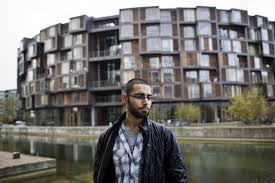 COPENHAGEN, Nov 1 — On a continent where Muslim leaders are decrying a surge in discrimination and aggression, Alisiv Ceran is the terrorist who wasn’t.
COPENHAGEN, Nov 1 — On a continent where Muslim leaders are decrying a surge in discrimination and aggression, Alisiv Ceran is the terrorist who wasn’t.
The 21-year-old student at the University of Copenhagen recently hopped on a commuter train to this stately Scandinavian city, his bag bulging with a computer printer. Feeling jittery about a morning exam, he anxiously buried his nose in a textbook: “The United States After 9/11.”
A fellow passenger who reported him to police, however, saw only a bearded Muslim toting a mysterious bag and a how-to book on terror. Frantic Danish authorities launched a citywide manhunt after getting the tip. Ceran’s face — captured by closed-circuit cameras — was flashed across the Internet and national television, terrifying family and friends who feared he might be arrested or shot on sight.
“It was the first time I ever saw my father cry, he was so worried about me,” said Ceran, who called police when he saw himself in the news, then hid in a university bathroom until they arrived. “I think what happened to me shows that fear of Islam is growing here. Everybody thinks we’re all terrorists.”
Ceran’s ordeal is a sign of the times in Europe, where Muslims are facing what some community leaders are comparing to the atmosphere in the United States following the attacks of Sept. 11, 2001.
Then, fears were linked to al-Qaeda. Today, they are tied to the Islamic State — and, more specifically, to the hundreds of Muslim youths from Europe who have streamed into Syria and Iraq to fight. Though dozens of Americans are believed to have signed up, far more — at least 3,000 — are estimated to have come from Europe, according to the Soufan Group, a New York-based intelligence firm.
One French returnee staged a lethal attack in Belgium last year. After more alleged terror plots were recently disrupted in Norway and Britain, concern over the very real risk posed by homegrown militants is now building to a crescendo among European politicians, the media and the public.
“It’s a clash of civilizations,” said Marie Krarup, a prominent lawmaker from the Danish People’s Party, the nation’s third-largest political force. “Islam is violence. Moderate Muslims are not the problem, but even they can become extreme over time. In Islam, it is okay to beat your wife. It is okay to kill those who are not Muslims. This is the problem we have.”
Muslim leaders point to a string of high-profile incidents and a renewed push for laws restricting Islamic practices such as circumcision that suggest those fears are crossing the line into intolerance.
In Germany, a protest against Islamic fundamentalism in Cologne last Sunday turned violent when thousands of demonstrators yelling “foreigners out” clashed with police, leaving dozens injured.
Muslim leaders also cite a string of recent incidents in Germany, ranging from insults of veiled women on the streets to a Molotov cocktail thrown at a mosque in late August.
In Britain, Mayor Boris Johnson was recently quoted as saying “thousands” of Londoners are now under surveillance as possible terror suspects. In Paris last week, a woman in Islamic garb that obscured her face was unceremoniously ejected from a performance of La Traviata at the Opéra Bastille. Although France passed a ban on the wearing of full Muslim veils in public in 2010, the incident involved a rare enforcement of the law by private management who did not take the necessary legal step of calling police first.
Even moderate Muslims say they are increasingly coming under fire, particularly in the European media. A recent commentary in Germany’s Bild tabloid, for instance, condemned the “disproportionate crime rate among adolescents with Muslim backgrounds” as well as the faith’s “homicidal contempt for women and homosexuals.”
“This is the hour when critics of Islam are engaging in unchecked Muslim-bashing,” said Ali Kizilkaya, chairman of the Islamic Council of Germany.
The current mood, Muslim leaders say, is less a sudden shift than a worsening of a climate that had already been eroding for years.
After the horrific transit bombings that killed hundreds in Madrid and London in the mid-2000s, Muslims in Europe faced increased pressure and scrutiny. The Islamic community has been increasingly challenged for the inability — or unwillingness — of many Muslim immigrants and their children to assimilate into progressive European societies. In recent years, France and Belgium passed laws banning full Muslim veils. Switzerland barred the construction of new mosque minarets.
In Britain, negative sentiments spiked last May after the slaying of a British Army soldier in London by two homegrown radicals. After the killing, Asimah Sheikh, 36, a mother of two who helps out at her brother’s Islamic clothes shop in northwest London, said the tires were slashed on her car and “go back home” was written on the windshield. This year, she said, the rise of the Islamic State — a group known for beheadings, crucifixions and mass executions — has again worsened the climate.
“They call me ‘Batman’; they call me ‘jihadi.’ They ask, ‘What have you got hiding under that scarf?’ ” she said.
Few countries in the region have seen a fiercer debate over Islam than here in Denmark, which became the target of Muslim rage in 2006 after the publication of satirical caricatures depicting the prophet Muhammad in a Danish newspaper. More recently, nearly 100 mostly young Muslims have left Denmark to fight in Syria and Iraq.
Progressives have hailed a program in one city — Aarhus — that is trying to aid returning jihadis by finding them jobs and places in school. But nationwide, Muslim leaders and progressive Danish politicians say tensions are rising amid an increasingly toxic public debate over Islam itself.
Earlier this year, Denmark set new curbs on the Muslim tradition of halal slaughter, and national lawmakers are now debating a law that could set new limits on religious circumcision, a move that could impact Muslims and Jews alike. Some politicians are calling for a new ban on immigration from Muslim countries.
Some young Muslims like Ceran — an English and Mandarin major who works as a mentor for underprivileged youths and is the son of Turkish immigrants to Denmark — are beginning to contemplate whether it’s wise to stay.
“The stigma against Muslims is just getting worse, and I have considered moving across the border to Sweden,” he said. “I feel that here, they are saying that integration means forgetting your religious values. I don’t agree with that.”
Stephanie Kirchner in Berlin and Karla Adam in London contributed to this report


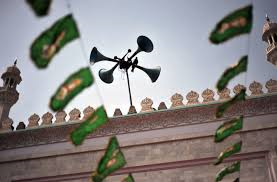

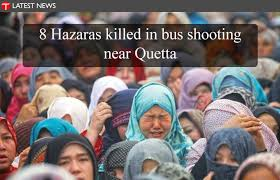

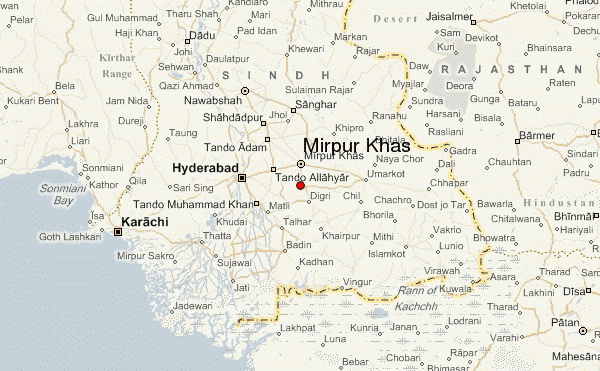
 MIRPURKHAS, July 15 — In a country roiled by violent strife, the southern province of Sindh, celebrated as the “land of Sufis,” has long prized its reputation as a Pakistani bastion of tolerance and diversity.
MIRPURKHAS, July 15 — In a country roiled by violent strife, the southern province of Sindh, celebrated as the “land of Sufis,” has long prized its reputation as a Pakistani bastion of tolerance and diversity.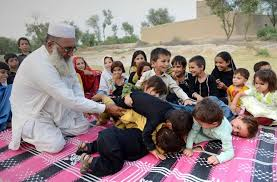

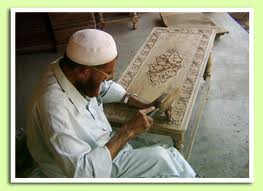

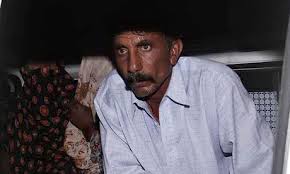

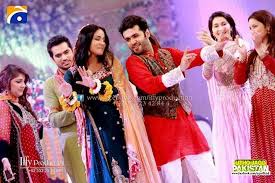

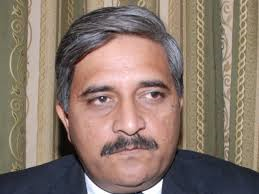

 The HRCP said no one was wiling to take on Mr Hafeez’s defence until Mr Rehman stepped forward. After the first hearing inside a prison in March, when he was allegedly threatened, the HRCP issued a statement which said: “During the hearing the lawyers of the complainant told Rehman that he wouldn’t be present at the next hearing as he would not be alive.”
The HRCP said no one was wiling to take on Mr Hafeez’s defence until Mr Rehman stepped forward. After the first hearing inside a prison in March, when he was allegedly threatened, the HRCP issued a statement which said: “During the hearing the lawyers of the complainant told Rehman that he wouldn’t be present at the next hearing as he would not be alive.” Efforts to reform the laws by Pakistan’s previous government were scrapped in the aftermath of the murder in January 2011 of Salmaan Taseer, the governor of Punjab province, where Multan is located, who had spoken about the misuse of the laws and the need to reform them. A second politician, the then-minorities minister, Shahbaz Bhatti, who also supported reforming the laws, was murdered two months later.
Efforts to reform the laws by Pakistan’s previous government were scrapped in the aftermath of the murder in January 2011 of Salmaan Taseer, the governor of Punjab province, where Multan is located, who had spoken about the misuse of the laws and the need to reform them. A second politician, the then-minorities minister, Shahbaz Bhatti, who also supported reforming the laws, was murdered two months later. Mr Daad said that after the prosecuting lawyer involved in the blasphemy case had made the threatening comment, Mr Rehman informed the District Bar Association and sought protection from the local police. Yet he said that Mr Rehman received no response from officers. The police in Multan were unavailable for comment.
Mr Daad said that after the prosecuting lawyer involved in the blasphemy case had made the threatening comment, Mr Rehman informed the District Bar Association and sought protection from the local police. Yet he said that Mr Rehman received no response from officers. The police in Multan were unavailable for comment.